
Pub Accommodation Review 2025
Customer retention is just as, if not more, important than attracting new customers through your doors. Amidst squeezed consumer spending and a challenging trading environment for hospitality, operators need to be doing everything they can to drive repeat business and keep guests coming back again and again.
In this article, Dan Brookman, founder and CEO of customer data management and broadcast platform Airship, shares his top three considerations for operators looking to drive customer retention.
Last year, we recorded 81 million digital signatures from consumers in hospitality, based on the passive data that we hold for 45 million members of the public. The opportunity to collect passive data from all the different points at which a customer engages with technology – whether that’s room & table bookings, Wi-Fi, vouchers, customer feedback or photo booths has never been greater.
Every digital signature, which we call a Proof of Presence or PoP, represents a moment to understand your customer more, and to know the profile of the customer that is delivering the most value. And that’s where the magic happens: the more frequent those interactions, the more opportunity you have to create more customers like those visiting most often.
Once you’ve gathered all this data, it’s time to put it to work. For example – birthdays. We’ve found that 45% of people who open an automated ‘Happy Birthday’ e-mail, will end up visiting within 30 days. That’s huge. The key is making sure those emails are timed well and personalised. A simple nudge after a recent visit, or a targeted offer based on a customer’s behaviour, can bring them back to your venue.
2. Focus on frequency
In hospitality, we talk a lot about loyalty, but I call it frequency. There’s a real difference between the two in terms of how you approach them.
If we really want to build a strong, engaged customer base, it’s about driving consistent visits. Whether your customer is dormant, occasional, active, or lapsed, tracking their engagement can show you how to spark more frequent visits.
Here’s a great example: a pub company we work with found that 56% of dormant guests came back after being offered the right incentive. The ones who had opted into marketing saw even better results. It’s proof that engaging with customers, and offering them value, can bring them back to your venues time and time again.
3.Create a Value Exchange (VX)
To get people to come back, you have to create a value exchange. This isn’t complicated, it’s simply about creating something that the customer can see clearly what they’ll get in return for the data that they are providing. You can focus the rewards around your value driving occasions; private dining rooms, weekly specials, functions rooms, extra nights stay and of course surprise and delight.
For example, offering a reward for a special occasion enables you to collect that piece of data, you can then drive a visit and help share in that special occasion with your customer. Driving emotional loyalty connected to a special occasion will embed lifelong loyalty (as long as you deliver it well!)
The Value Exchange simplifies the approach to marketing, taking all customers on the same journey, it can help you focus on running active database sign-up campaigns and convert your social data into CRM data (first party).
Loyalty apps can still play a really important role as part of the overall mix. I think where a lot of operators still fail, is that they implement loyalty without first putting their existing data to work, and that’s a massive missed opportunity.

Pub Accommodation Review 2025
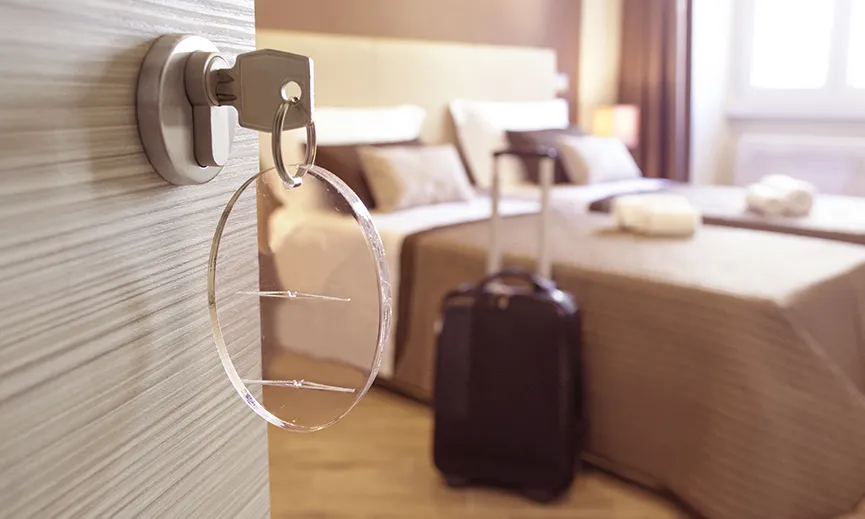
Seamless stays and smooth operations: The impact of Zonal PMS on pub accommodation
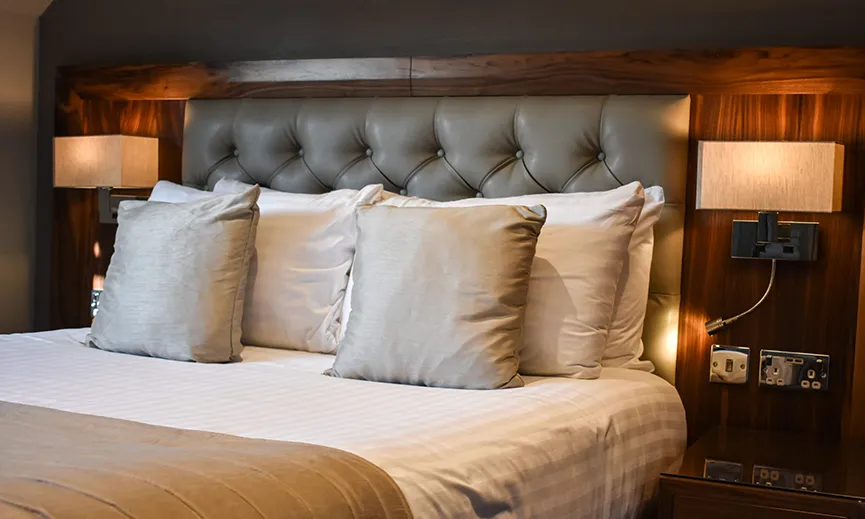
Unlock new revenue: How accommodation can boost your pub business

GO Technology: Hotels and consumers – Guest expectations and how to meet them

Podcast: The future of hotel management

10,000 job-ready recruits set to boost hospitality industry
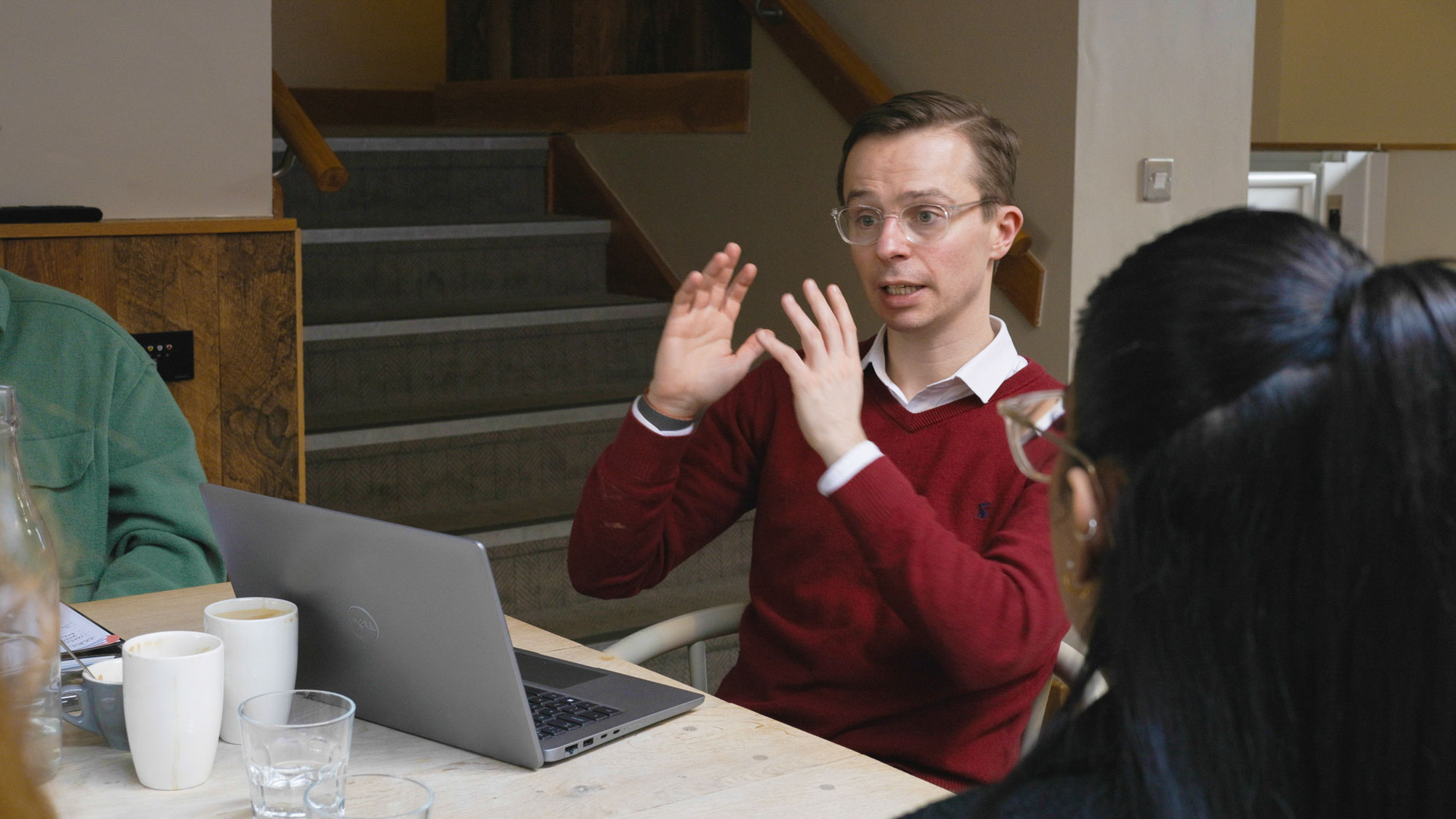
Meeting the next generation of hospitality leaders
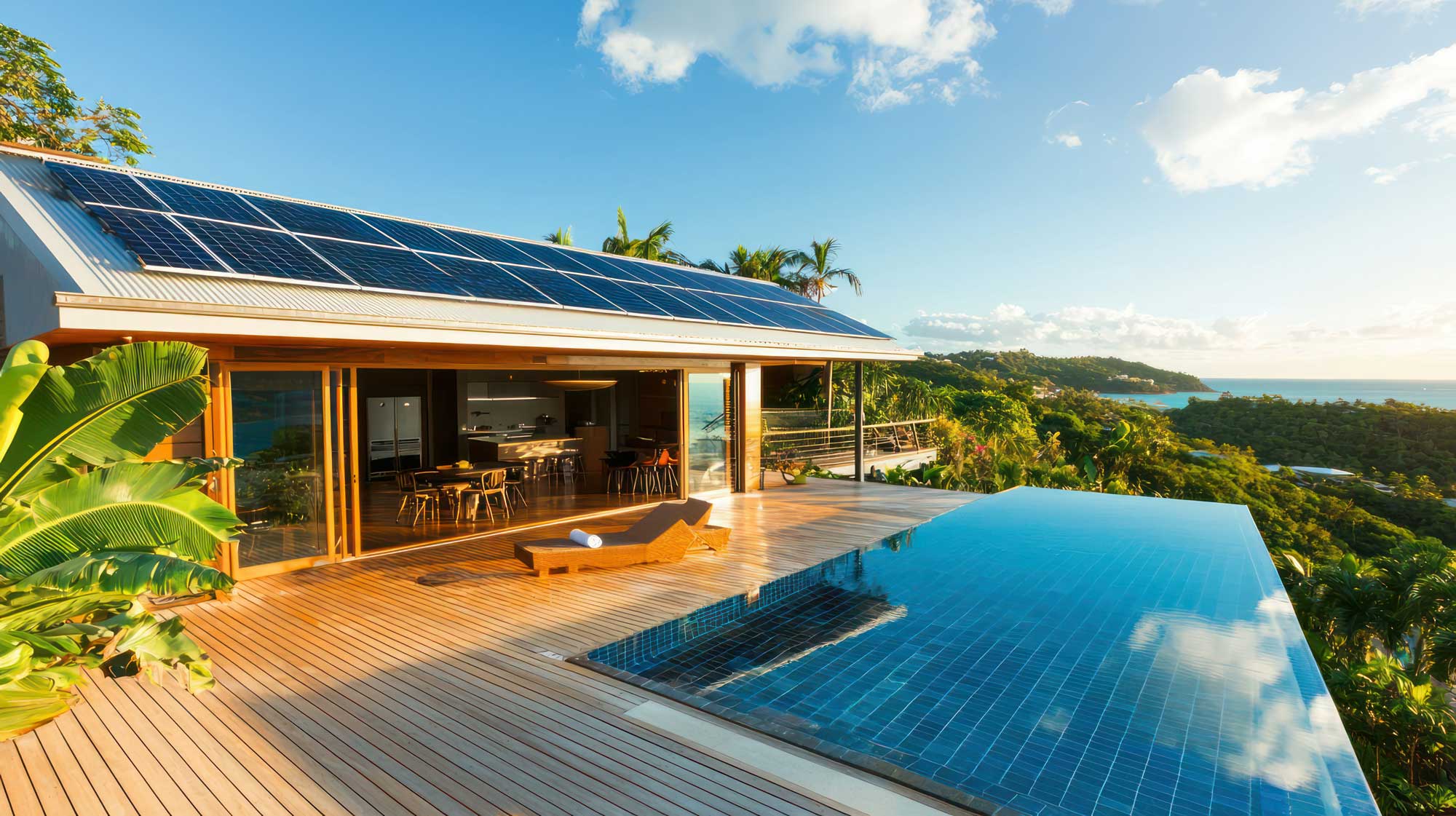
Universal sustainability: Working together for a greener hospitality industry

Making the business case to Finance for hospitality technology
Research for our Pub Accommodation Review 2025 – produced in partnership with CGA by NIQ, Stay in a Pub, and VisitEngland – shows that two thirds of operators say their accommodation revenue is higher (43%) or the same (24%) as a year ago, and 56% expect it to grow in the next year. While the hospitality sector continues to navigate increasing cost pressures and squeezes to profit margins, with one third of hospitality businesses operating at a loss, there are opportunities for operators to offset those challenges by getting their accommodation offering right – with many looking to introduce it for the first time – and fortify their businesses with a profitable revenue stream.
Pubs offer a unique and comforting experience like no other hospitality business, and UK staycationers recognise this – 79% of those who choose pub accommodation say expectations of friendly and welcoming staff would encourage them to stay.
It’s also true that pub stays are seen as value for money, with more than two in five (42%) consumers thinking pubs offer better value for money than other types of accommodation (making pubs only just behind camping in consumer rankings of the best-value stays).
However, while the demand for pub accommodation is on the rise, it’s a competitive sector and operators need to consider how to grow their reach through online presence, how to increase revenues through a streamlined booking process, and how to best stand out amongst competitors in this market.
Increase Online Visibility
Operators who are considering investing in accommodation as an additional revenue stream, should keep in mind that the customer journey begins even before the booking process.
More than a third of consumers found their last accommodation via search engine, and this is the most popular method for guests to find a pub to stay in. That said, a fifth (20%) of consumers believe that searching for a pub to stay in is difficult – so operators need to ensure they are focusing on becoming more discoverable online, to avoid missing out on potential bookings.
Pub accommodation providers can leverage their technology to increase booking conversions through search engines by integrating their PMS with Google to facilitate a room booking journey directly from their Google search result.
This is only one aspect of improving online visibility, however. It is equally important to consider integration with OTAs (online travel agents), or member associations, such as Stay in a Pub, in order to have greater reach and provide the same booking capabilities as hotels and other accommodation offerings to therefore add a greater of chance of achieving bookings. Through this integration, real time availability will give customers the chance to make bookings right up until the last moment, while operators can track customer data and follow a guest’s journey throughout.
Online reviews are also a key part of online presence, our research found that almost all (92%) consumers agreed they play a huge part in booking decisions. It is vital, then, that pubs manage their overall digital footprint by encouraging guests to post positive reviews and are responsive to all comments, even negative ones, in order to turn even unsatisfied guests into advocates.
Having an active and welcoming social media presence to sell the experience can also attract younger consumers and diversify the appeal of staying in a pub.
Simple Booking Systems
Once the decision to reserve a room has been made, we know that complicated booking systems can deter guests from making those final clicks – in our survey, over half (53%) of those who consider pubs for overnight stays say complicated booking systems can deter them from following through with a reservation. This is particularly true of 18- to 34-year-olds, with over a third (38%) of this age group saying they don’t know how to book a stay at pubs.
Ensuring the booking journey has as few steps as possible and is simple to use, as well as making the most of one-stop platforms such as Stay in a Pub, will therefore maximise conversions.
To further encourage consumers, operators could also consider offering flexible check-in and check-out options. By using integrated POS and PMS systems, operators can easily incorporate accommodation into their day-to-day operations, meaning a dedicated check-in desk won’t be needed as guests can be checked in at a POS, easing pressure on staff, as well as streamlining the experience for guests.
The Unique Pub Offer
There is also an opportunity at this point in the booking journey – when guests are in ‘buying mode’ – for pub operators to amplify other offerings, such as F&B. To upsell this area, operators can offer options such as a bottle of wine in rooms on arrival, or a welcome cocktail with the ‘extras’ functionality within the PMS, which will further boost revenue.
Also, prompting guests to book a table for lunch or dinner with a table booking integration, both during the booking experience and in follow-up communications, such as confirmation emails, can boost spend. Use the opportunity to showcase the best, and most profitable, dishes on your menu and perhaps offer bundle deals for a room, breakfast and dinner, or offer a free drink, or other promotion.
Indeed, a key attraction to staying in a pub is the food and beverage offering. With 67% of consumers viewing the high-quality F&B in a pub as often superior to that of hotel restaurants, operators have a valuable opportunity to enhance overall guest satisfaction by excelling in this area.
Another benefit staying in a pub offers over a hotel, our research demonstrates, is that consumers see pubs as being at the heart of the area they are visiting. Some 39% say pubs offer a more authentic local experience than other types of accommodation. As a result, more than three quarters (78%) of consumers say they are likely to seek local information and recommendations during their stays and so ensuring there is local information is available and teams are primed to give recommendations, will further enhance guest stays.
Beyond a Bed
Providing a bed for the night is one thing, and will no doubt be a valuable additional revenue stream on its own. However, operators wanting to maximise the opportunity of the growing appeal of pub stays, need to understand what they can do to reach more potential guests, encourage them to book and drive spend per head.
From simple and fast reservation systems, to utilising the reach of OTAs, to driving online reviews, to identifying where the opportunities are to upsell and maximise revenues, to freeing up staff to give local recommendations and deliver really great customer experiences, tech will be a helping hand for operators looking at the accommodation market.
For more insights into the pub accommodation sector, download the full Pub Accommodation Review 2025 report today.
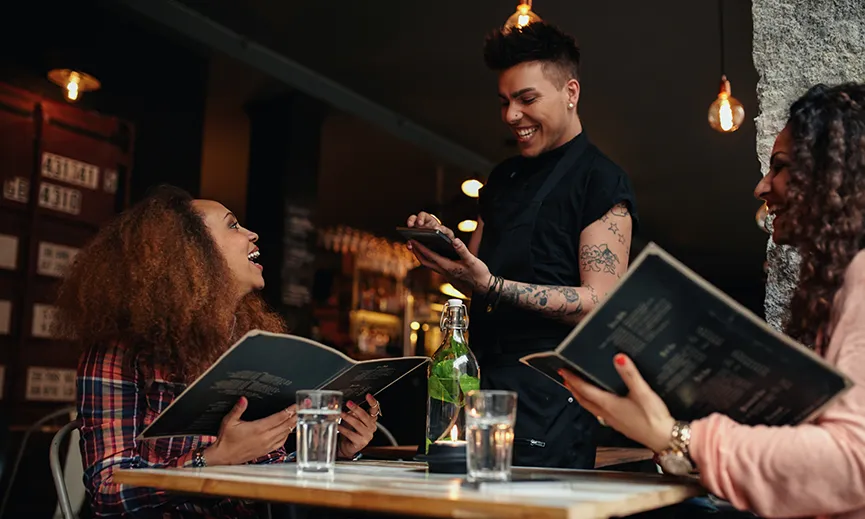
The power of personalised communication in driving loyalty

Pub Accommodation Review 2025

Seamless stays and smooth operations: The impact of Zonal PMS on pub accommodation

Unlock new revenue: How accommodation can boost your pub business

GO Technology: Hotels and consumers – Guest expectations and how to meet them

Podcast: The future of hotel management

10,000 job-ready recruits set to boost hospitality industry

Meeting the next generation of hospitality leaders

Universal sustainability: Working together for a greener hospitality industry
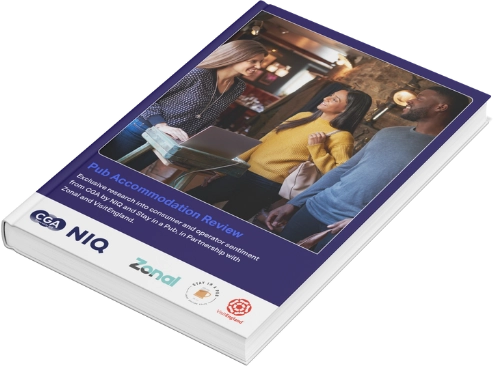
Amidst high demand for UK accommodation, there’s huge growth potential for UK pubs to boost revenue by making rooms a core part of their offering.
Whether it’s a friendly welcome, high quality food and drink, or a more relaxed, welcoming atmosphere, a stay in a pub holds broad appeal for many consumers. But what are the key factors that influence guests in choosing to book a stay in a pub? How can pubs with rooms reach more guests? And what are the potential barriers causing guests to choose to stay elsewhere?
This report, produced in partnership with CGA by NIQ, Stay In a Pub, and VisitEngland, provides an in-depth exploration of current guest sentiment towards the UK pub accommodation sector from both guests and businesses; identifying where the opportunity lies for pubs that invest in accommodation, as well as the view from pub accommodation operators.
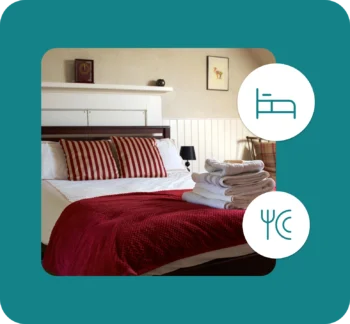

GO Technology: Why 6:12pm is the new 8pm

Pub Accommodation Review 2025

GO Technology: Hotels and consumers – Guest expectations and how to meet them
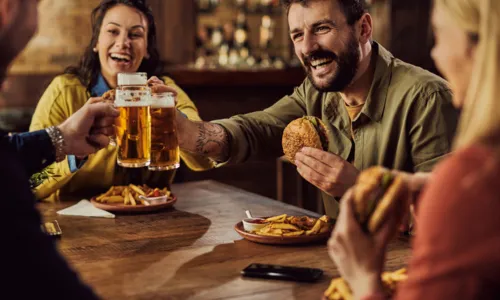
GO Technology: Consumers and hospitality: 2024 in review
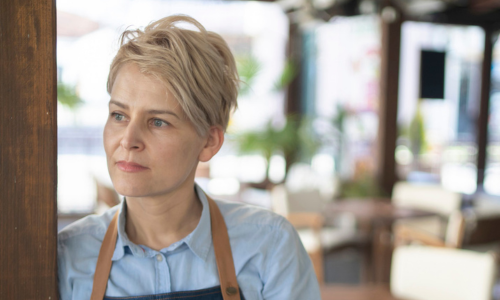
GO Technology: The truth behind no-shows

GO Technology: Brand loyalty in hospitality

GO Technology: Fixing people’s hospitality bugbears
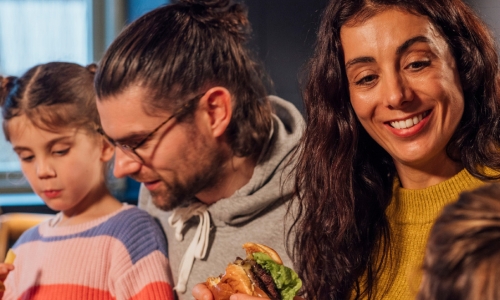
GO Technology: The value of hospitality – Exploring consumer insights and perceptions
Pubs with rooms are on the rise. With more than 5,700 pubs with rooms across the UK —equating to around 50,000 guest rooms—and 41% of operators planning to expand their offering, it’s a market full of momentum. Pubs with rooms are perfectly placed to meet the needs of guests who want the charm, informality, and character of an Airbnb, but with the service standards, food, and drink experience only a pub can offer. In the article, Are pubs with rooms the new boutique hotels?, The Caterer recently reported on the growing trend of consumers turning away from budget hotel chains to mid-market pub groups with rooms.
With the right technology in place, pub operators have a unique opportunity to capitalise on this trend—streamlining operations, improving visibility, and delivering exceptional guest experiences from booking to checkout.
One of the most important aspects of Zonal PMS is its ability to enhance property visibility online in the market by integrating directly with online travel agents as well as your own website. A joined-up tech stack which feeds directly into the OTAs, saves a lot of time and makes selling your rooms significantly easier —with real-time availability making it possible to sell rooms right up to the last minute.
The technology also allows you to track customer data, ensuring that the guest journey can be followed from start to finish. This level of insight provides you with valuable information to help tailor and deliver great service to guests.
We recently spoke to some of the Provenance Collection team to find out what benefits integrated technology has had to their business.
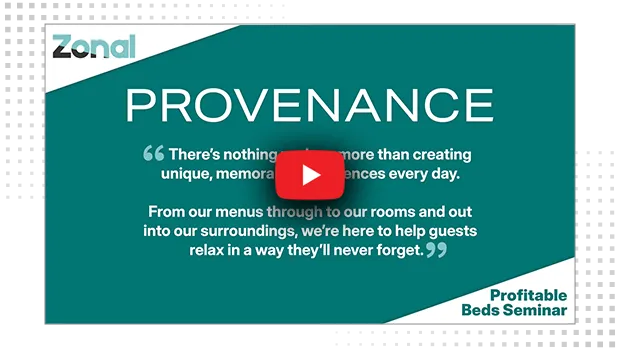
With Zonal PMS teams are freed up to focus spending more time with customers on creating great hospitality experiences for guests, where staff can be out on the floor engaging with customers, instead of spending time on admin. It’s not so much about eliminating tasks, but instead about freeing up staff to do what they really care about – creating great experiences.
Zonal PMS enables pub operators to efficiently manage bedroom booking rates, especially across multiple sites. What could take up to 12–15 hours per week can now be handled in just a couple of hours with Zonal PMS —freeing up valuable time.
Utilising one platform to manage your accommodation across your whole estate means that staff training is centralised across all sites, and service is consistent because staff are using identical technology across locations, processes such as booking, check-in, check-out, and billing are streamlined—ensuring accuracy and delivering a seamless guest experience.
We understand how frustrating it can be for guests to navigate a disjointed booking process—reserving a room, only to have to return to the website and click through again if they want to book a table as well. With the right technology in place, such as a table booking system that integrates natively with your PMS, guests can reserve a table in the pub’s restaurant at the same time they book their room. What’s more you can offer guests the opportunity to purchase optional extras whilst booking their stay and include optional extras such as Champagne, Flowers, Early Check-Ins and Late Check-outs. This not only streamlines the experience but also creates valuable upselling opportunities for food and drink, reduces admin for your team, and enhances the overall guest journey.
Zonal’s loyalty platform can also play a role here in helping venues encourage and reward repeat visits, where points can be collected and offers can be distributed through the platform. For example, hotel guests who stay regularly may earn points for each visit, and as it builds up, they’ll eventually have enough for a for a free stay.
In addition to rewarding loyal guests and driving repeat visits, an integration with Zonal’s loyalty platform can also help you boost guest spend during their visit and boost engagement with both the accommodation and F&B sides of your business. Loyalty rewards accrued from a guest booking a stay with you can be redeemed in your restaurant or bar, and vice versa, with any loyalty balance built from guests eating and drinking in your pub able to be used to pay towards their room during a stay.

The power of personalised communication in driving loyalty

How important are effective comms in building customer relationships?

Splitting the bill made easy using Zonal’s EPoS

GO Technology: Why 6:12pm is the new 8pm
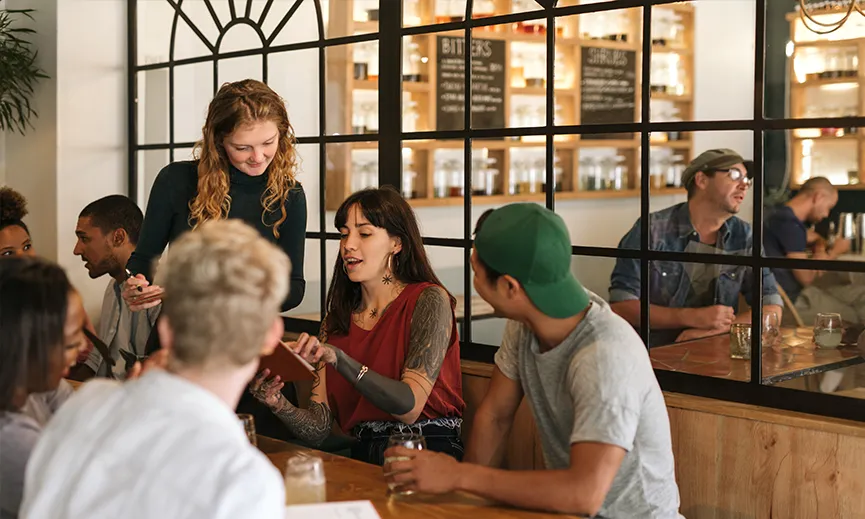
How can smaller hospitality businesses make loyalty work?

How to nurture loyal customers
With rising costs, increasing regulatory changes and evolving customer expectations, pubs face mounting pressure to boost revenue and increase profitability in 2025. For Lisini Pub Company, a beloved family-run operator with four vibrant locations across Lanarkshire, innovation has been the key to success.
Lisini has a long history of delivering outstanding experiences for its guests, firmly establishing itself as one of the biggest and most successful names in Scottish hospitality. Having become a beacon for the finest food, service, entertainment, events and functions in Lanarkshire – the team have enhanced their offering by introducing guest rooms at their sites. Since launching this brilliant accommodation, the company has seen a marked increase in footfall, stronger brand loyalty, and a rise in revenue.

We spoke with Siobhan Edwards, Director of Lisini Pub Company, to discover how they have transformed their business through innovation, helping them to thrive in challenging times.
What started in 1969 as a single pub founded by my parents, Harry and Kathleen Hood, has evolved into one of Scotland’s most successful and respected family-run hospitality businesses. Today, we are proud to operate five locations, offering 30 hotel rooms across our estate, and generating a turnover of £15.5 million.
Based in Lanarkshire, just outside of Glasgow, our venues are located within a short drive of each other. Each venue offers its own unique menu and atmosphere, catering to a range of tastes, yet all share the same strong, community-focused, family-run ethos.
Our dedicated team, many of whom have been with us for over a decade, help create that welcoming, family-friendly atmosphere that our customers love. From food and drinks to memorable events, our venues are the perfect place to celebrate life’s important moments — whether it’s a wedding, birthday, christening, or funeral. These connections span generations, and we’re honoured to be a part of them.
We cater to a diverse range of guests, with each venue offering something for everyone. Take Angels, for instance – a mix of bar, nightclub, and dining destination. It’s a favourite for a younger demographic, influencers, and travellers seeking great food, vibrant nights, and a memorable atmosphere.
travellers seeking great food, vibrant nights, and a memorable atmosphere.
However, the majority of our guests are local and community-oriented, with our venues offering tailored experiences that make everyone feel at home. From classic British pub fare like hearty pies and fish & chips to fresh, customer-inspired dishes, we’re always evolving to meet our guests’ tastes. With a strong family legacy and a reputation built on integrity, we’ve earned the loyalty of customers who return time and time again.
When it comes to driving revenue, offering rooms at your pub isn’t just about providing somewhere to sleep – it’s about enhancing your entire food and beverage experience too.
By adding rooms to our pubs, we’ve unlocked the opportunity to host a calendar full of exciting events, significantly boosting our bottom line. We’ve found that guests attending these events are more likely to extend their stay, ordering additional food, drinks, and treats to fully enjoy the experience.
In fact, 90% of our overnight guests tend to dine and drink on-site, creating more opportunities for additional sales and a higher spend per customer. Offering tailored packages that combine event tickets, food, drinks, and overnight stays has created multiple revenue touchpoints, ensuring our guests have a memorable experience while driving sales across the board.
Moreover, offering rooms can encourage repeat visits and foster loyalty. It may sound simple, but we’ve noticed that when guests have a positive experience at our venues, they’re more likely to return and recommend us to others. This word-of-mouth marketing, combined with the opportunity to attract bookings during peak seasons, helps not just fill rooms, but also bring in more customers to the restaurant and bar, leading to increased revenue for the business.
We are always looking at evolution. For example, we had a very small beer garden of around 30sqm in Angels Hotel, and we have invested £250k to transform this into The Vault – a social events space which will offer private karaoke, interactive darts and its own bar. For us, it’s about looking at dead spaces and dead revenue, and doing something about it, using the space we have to enhance our offering and give customers another reason to visit – whether that’s for an experience in The Vault or an overnight stay in our growing number of rooms.
Running a busy group of pubs is no easy task, but Zonal’s technology has made things much easier for us. It’s not just about working smarter; it’s about working more efficiently.
Implementing a fully integrated Property Management System (PMS) has been a game changer. It has streamlined everything from reservations and guest check-ins to sales forecasting and business performance analysis. What truly sets it apart, however, is its seamless integration with our EPoS software, stock-take system, and booking platform. Everything works in harmony, eliminating the need to spend hours reconciling orders or collecting data from separate systems. This allows our team to focus on what matters most – providing an exceptional experience for our guests.
One of the things we really appreciate about Zonal is how everything is tailored to fit our unique needs. Rather than taking a ‘one-size-fits-all’ approach, Zonal allows us to select the most effective technology for our specific needs. We’ve been able to bring everything into one place, and that’s made a huge difference in streamlining our operations and boosting efficiency.
At Lisini, we’re all about putting the customer at the heart of everything we do. That shared commitment to enhancing the customer journey has made our partnership with Zonal a perfect fit.
“We live and breathe pubs, and our technology has been serving the UK pub industry for decades. A well-integrated PMS system in pubs not only streamlines operations but also opens new avenues for revenue, from personalised guest experiences to smarter resource management. By leveraging data, pubs can diversify their offerings and unlock untapped potential, ensuring consistent growth and a competitive edge – something which is more important than ever in a dynamic market.”

Tim Chapman
Sales Director at Zonal

The power of personalised communication in driving loyalty

How important are effective comms in building customer relationships?

Splitting the bill made easy using Zonal’s EPoS

GO Technology: Why 6:12pm is the new 8pm

How can smaller hospitality businesses make loyalty work?

How to nurture loyal customers

Pub Accommodation Review 2025
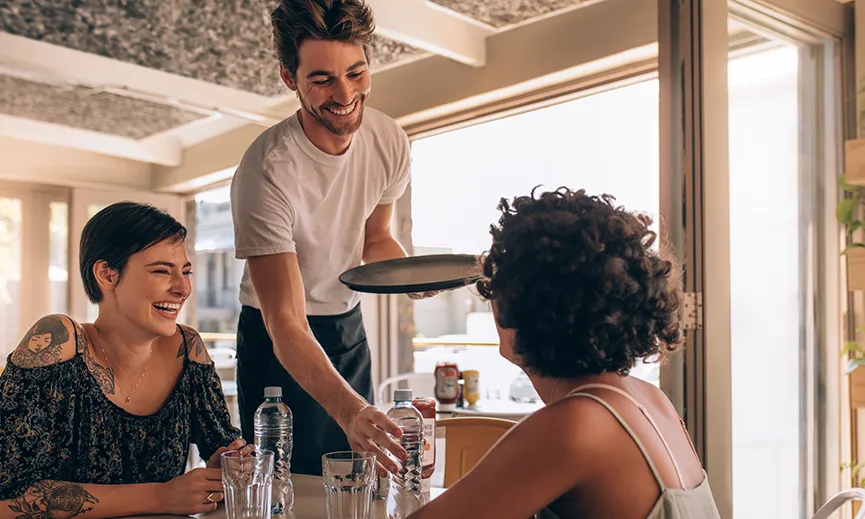
Loyalty in a cost-of-living crisis
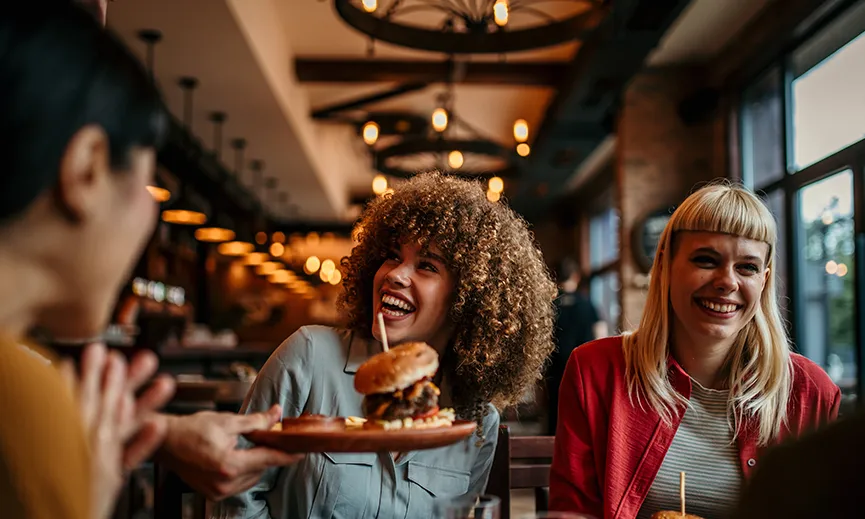
The evolution of loyalty schemes in hospitality
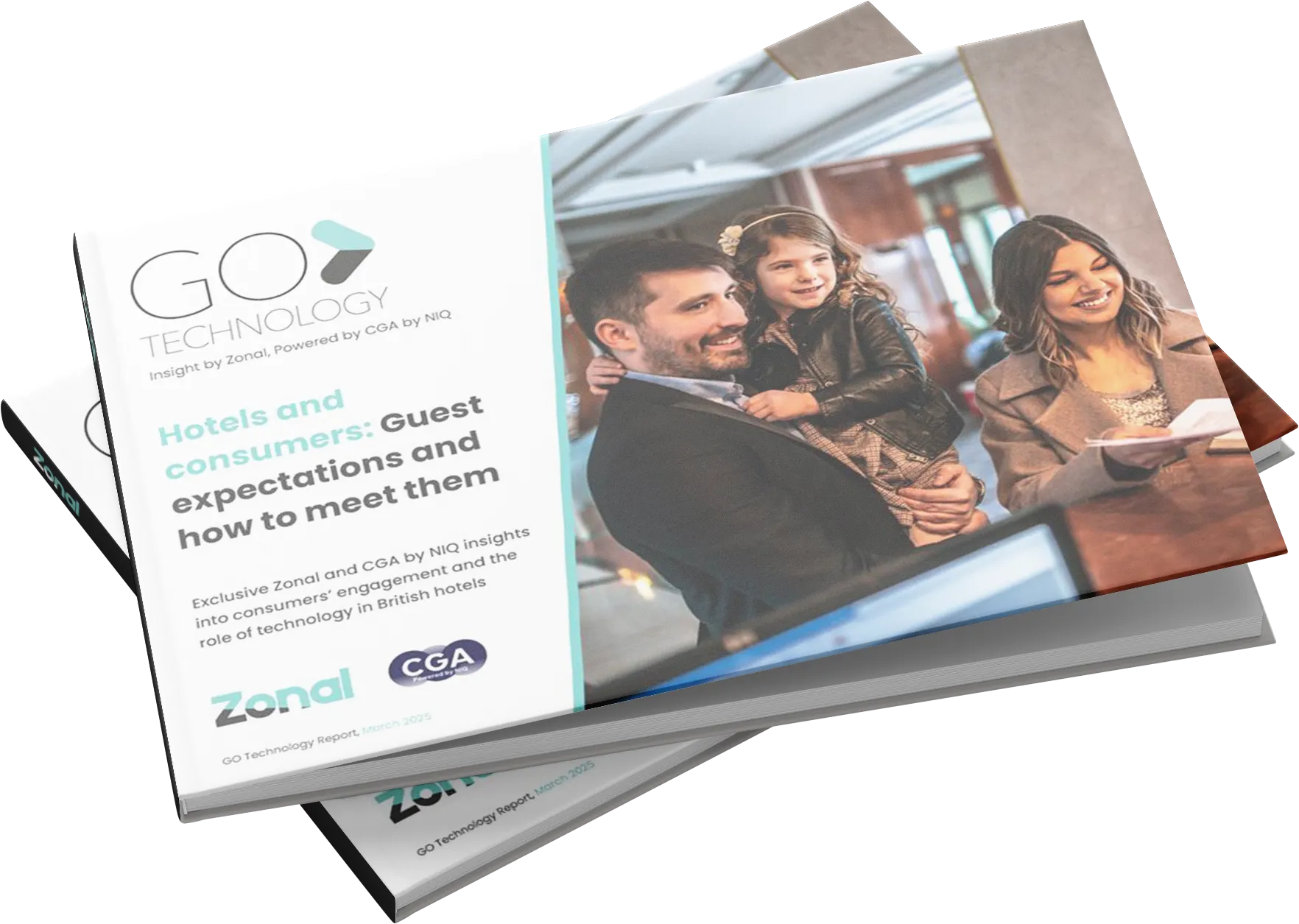
Both domestically and abroad, the demand for accommodation remains high, with 78% of consumers having stayed in a hotel in 2024.
But guests’ engagement with hotels is evolving. With more discovery tools at their disposal than ever, and plenty of choice when it comes to the type of accommodation they want to stay in, it’s vital for hoteliers and operators to understand guest behaviour to stay ahead of the game.
This report, produced in partnership with CGA by NIQ, surveyed over 3,000 British consumers to provide a deep dive into what it is guests are looking for when booking a stay in a hotel; including how often, and for what reasons, guests are staying in UK hotels, their engagement with F&B during their stay, and the factors that influence their choice of hotel when booking a stay.


GO Technology: Why 6:12pm is the new 8pm

Pub Accommodation Review 2025

GO Technology: Hotels and consumers – Guest expectations and how to meet them

GO Technology: Consumers and hospitality: 2024 in review

GO Technology: The truth behind no-shows

GO Technology: Brand loyalty in hospitality

GO Technology: Fixing people’s hospitality bugbears

GO Technology: The value of hospitality – Exploring consumer insights and perceptions
The latest episode of the Tech On Toast podcast features our very own Pete Saunders, Head of Relationships at Zonal Hotel Solutions.
This episode takes a dive deep into the world of hospitality technology and explores the intersection of technology and hospitality, including:

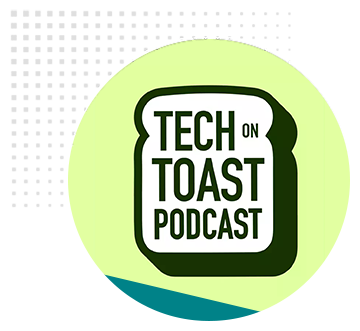
The Tech on Toast podcasts are brought to you by Chris Fletcher, Founder & CEO of Tech on Toast. Chris talks to entrepreneurs in the world of hospitality and retail technology searching for the best problem-solving tech in the industry.
In this episode, Chris talks with Pete about customer obsession with hospitality tech. From personalisation to operational efficiency, the podcast explores how our solutions help businesses create exceptional guest experiences. Plus, why legacy tech isn’t a drawback – it’s a badge of honour!
Nottingham, Edinburgh and Liverpool have become the latest UK cities to announce the implementation of a new type of ‘tourist tax’ on hotel stays. They join Manchester which already has a £1 per room, per night charge in place for visitors, on top of their bill.
The schemes are growing in popularity after success across Europe in cities such as Paris, Bruges and Barcelona, which allow local authorities to implement a ‘transient visitor levy’ on short-stay travellers.
But there is a catch; local authorities in England are not actually legally allowed to tax tourists.
British cities like Manchester have introduced a legal workaround to bring in a levy for tourists, by incorporating accommodation into their existing Business Improvement District (BIDs) Zones and applying the same levy as they do to other businesses that fall within it. So, from April 2023, 78 accommodations in Manchester were included in its BID zone, and guests now pay to cover the new charges imposed on those buildings.
This levy raised more than £2.8million in its first year, creating much-needed funds for new initiatives to boost tourism and support the hospitality industry in the city.
Seeing this success, Nottingham and Liverpool are following suit in England, with similar BID charges set to start from summer 2026, earmarked to help raise funds to improve their visitor economies. The London Mayor, Sadiq Khan, is also reported to be looking into a new levy for the capital, after seeing Manchester’s success.
In Scotland, however, the Government has taken this one step further, by voting in favour of legalising a 5% enforced tourist tax on overnight stays in popular areas like Edinburgh, Glasgow and the Highlands, capped at five nights, starting in July 2026.
In Wales, the government has also voted in favour of an optional tourist tax to raise a forecast £33 million annually, which each of its 22 councils can choose to introduce from 2027.
Despite the plans to reinvigorate the UK tourism industry, these new levies have not come without a fair share of controversy in recent years.
Bournemouth saw plans for a new tourist tax thrown out by the Secretary of State for Housing, Communities and Local Government last summer after 42 hotels petitioned against it. The hotels from across Bournemouth, Christchurch and Poole objected to the proposed £2 per room, per night tax, claiming it would deter guests from staying due to the increasing costs, losing them vital business income.
UKHospitality has recently backed these claims, calling the tourist tax ‘damaging’ to the hospitality industry because it could make the UK less attractive to visitors.
Although there is opposition to levies in the UK, there is clear financial benefit for cities that impose them.
For example, the Edinburgh levy is set to raise £50 million per year, to fund cleaner streets, quicker removal of graffiti, environmental improvements, more attractive spaces and better transport connections; all in aid of further boosting tourism to the city.
In Liverpool, the newly proposed levy is predicted to raise £6.7 million over the first two years, which is set for investment in hospitality, events and cultural venues.
Hoteliers are understandably wary of new levies pushing prices up for visitors and the impact this will have on their booking numbers and ultimately, profits.
Despite this, the latest research has predicted that a country-wide, £1.25 nightly charge per person could raise £560 million for the economy, and the demand for tourist tax legislation seems to be growing from government officials.
This is set to be a hot topic for hoteliers, and something for hospitality bosses to consider when budget planning over the coming months.
UKHospitality has announced a brand-new partnership with the government to provide over 16s with sector-based Work Academy Programmes (SWAPs) to boost employment in the hospitality industry.
The scheme, which was announced last month, will provide applicants with the skills they need to secure employment within hotels, restaurants, bars, pubs and leisure venues.
The partnership comes as UKHospitality recently reported a shocking 48% increase in hospitality job vacancies in 2024 compared to pre-pandemic levels, revealing the desperate need for up to 90,000 skilled workers in the industry.
The sector-based programme will provide industry-specific training for applicants in 26 locations around the UK, with the goal of getting 10,000 young people job-ready by next year. UKHospitality aims to boost productivity in the industry, spur economic growth and provide people with stable, engaging and fulfilling careers.
Alongside SWAPs, The Department of Education has also made key changes to apprenticeship schemes to cut red tape and make learning more flexible for young people. This includes letting businesses decide whether each applicant needs to complete Maths and English qualifications at Level 2 to pass their chosen training scheme.
These hospitality sector-based Work Academy Programmes are set to bring thousands of high-quality recruits into the hotel industry. Through the Government’s Hospitality Skills Passports, workers will gain skills that are applicable across different roles in hospitality, from F&B provision and service to customer service and front-of-house roles. This means that hospitality businesses will gain staff with sought-after transferrable skills to boost productivity and provide great customer service across all departments.
This extra recruitment to the hospitality sector is forecast to support the industry to grow, boosting further investment and expanding profits for hoteliers and other business owners.
UKHospitality will begin rolling out this programme alongside the Department for Education from April 2025, in partnership with job centres, colleges and training centres across the country. This will make the scheme accessible for both applicants and hospitality businesses seeking new recruits.
As the demand for accommodation grows in the UK, the latest research shows investment activity will surpass 2019 levels this year.
The latest Savills report shows a surge of international interest with 3,000 new rooms in London alone. This new confidence from overseas investors coincides with the recovery of international travel to the UK since 2023, particularly from Chinese and American tourists.
To support the demand for rooms, some cities such as London have enforced supportive planning policies to convert unused spaces, such as offices, into micro and aparthotels. These new accommodations are often located in central business districts, perfect for visitors travelling for work. London has seen £400 million worth of investment in these schemes in the past 12 months, with this market forecast to grow rapidly in 2025.
Forbes recently reported that travel spending is at its highest levels since 1960, with Gen Z and Millennials leading the shift towards ‘experience travel’, creating a boom in tourism centred around specific events and experiences.
From concerts to sporting events, investment in hotels near arenas and stadiums is growing, as the younger generations prioritise a more integrated hospitality experience. The ‘Taylor Swift effect’ is a perfect example of the influence of significant events on the hotel industry, with sales at hospitality venues within three miles of Wembley Stadium averaging £1 million per night and hotel occupancy reaching 94%, during her five-night residency last year.
Luxury hotels have seen the biggest levels of investment since 2023, and the sector is forecast to grow even further this year. With bespoke culinary experiences, large private aparthotels and wellness and health retreats gaining huge traction, investment in luxury hotels that offer special experiences is booming.
This growth also benefits visitors with smaller budgets, and research shows that more affordable stays at off-peak times are growing in popularity, with mid-week occupancy rates improving significantly in the past year.
Hoteliers will be well aware of the significant pain points for the industry this year, from a rise in minimum wage and tax cost pressures to chronic staff shortages. Creativity and innovation have never been more important for hotels to gain investment to thrive.
Despite these challenges, the outlook is positive, with over £5.75 billion worth of investment in hotels in 2024. With a 5% increase in inbound tourism predicted this year, it has never been more important for hotels to embrace technological change to tap into new markets and reap the benefits of these exciting levels of growth.
https://premierconstructionnews.com/2025/01/21/uk-hotel-investment-reaches-five-year-highs/
https://www.savills.co.uk/blog/article/371000/commercial-property/what-s-here-to-stay-in-2025–trends-in-the-hotel-sector.aspx
https://www.savills.co.uk/insight-and-opinion/savills-news/370917/savills–uk-hotel-investment-reaches-%C2%A35.75-billion-in-2024–doubling-2023-levels
https://www.visitbritain.org/news-and-media/industry-news-and-press-releases/visitbritain-publishes-inbound-tourism-forecast-0